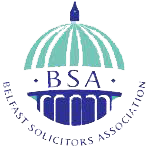DOMESTIC VIOLENCE & HARASSMENT SOLICITORS
If you or a loved one have been subject to any form of domestic violence in Northern Ireland, our discrete and compassionate expert solicitors are here to help, no matter what your situation is.
We understand that opening up can be hard and we’re here to listen.
Contact us today for a free confidential consultation to find out your next steps.

Why Keenan Solicitors?
Any form of domestic violence can destroy a life. We understand that if you have suffered from domestic violence, the trauma and turmoil you are going through may mean that you are hesitant to make that first step of speaking to someone about what you are going through.
Our Belfast-based solicitors are experts in dealing with domestic abuse cases. Every conversation you have is dealt with in absolute confidence and our solicitors will take the time to listen to you so that we can understand what you have gone through and the steps to take to help end the cycle of abuse. We are here for you, and we are on your side.
Call Keenan Solicitors on 028 90 49 3349 or tell us about it and we will call you at a time that suits you.
Contact Keenan Solicitors for family law advice today
Contact us now on 02890493349 or leave your details below for a free no obligation consultation.

Book your FREE no obligation consultation now
Call now or leave an enquiry to request a call back that suits you.
Reviews
⭐⭐⭐⭐⭐
⭐⭐⭐⭐⭐
⭐⭐⭐⭐⭐
Your Family Law Solicitors
Always approachable and highly regarded by thousands of satisfied clients, we will tirelessly work to achieve the best possible result for you.
What is Domestic Abuse?
Domestic abuse is an incident or pattern or incidents of controlling, coercive, threatening, degrading and violent behaviour (including sexual violence). It can be perpetrated by a partner or ex-partner, or by a family member or carer.
Common examples of domestic abuse include:
- Coercive control (a pattern of intimidation, degradation, isolation and control with the use or threat of physical or sexual abuse)
- Psychological or emotional abuse
- Financial abuse
- Harassment or stalking
- Online or digital abuse
If you have been subjected to any of the above, confidentially speak to one of our experts today, as a Court Order can be sought to protect you.
Non-Molestation Order
A non-molestation order can protect you or your family from being harmed, harassed or intimidated. It will also prevent the person carrying out the abuse from getting someone else to abuse you on their behalf.
Breach of the terms of a non-molestation order is a criminal offence which may lead to imprisonment.
To seek a non-molestation order, the person carrying out the abuse must be an ‘associated person’, meaning they must:
- Be or have been in a relationship with you
- Be a family member
- Be someone you’re living with or have lived with
The court may also make an order if it is needed to benefit a child.
A non-molestation order may be made to last for a specified period, or to run generally until an order is made.
It will be tailored to the circumstance of your specific case and the behaviour that must be controlled. Common provisions include forbidding the Respondent from:
- Using or threatening violence against the applicant
- Using or threatening violence against a related child
- Coming within a specified distance of the applicant
- Coming within a specified distance of the applicant’s home and or place of work
- Coming within a specified distance of a related child’s school
- Communicating with the applicant by any means (letters, text, telephone call, email) except through solicitors
- Threatening the applicant
If you situation is urgent, we can apply for an ‘EMERGENCY EX-PARTE’ non-molestation order. This can usually be obtained within 24 hours without notifying the other party that you are seeking it.
If someone has had a non-molestation order granted against you and you dispute the allegations, our expert solicitors can assist in contesting the order.
To speak to one of our solicitors today call 02890493349 or leave an enquiry an we’ll call you at a time that suits.
Occupation Order
An occupation order will regulate the occupation rights of your family home.
If you qualify for a non-molestation order, then depending on your circumstances, you may also be eligible for an occupation order.
Again, the court may only make an occupation order in respect of ‘associated persons’, meaning the person carrying out the abuse must:
- Be or have been in a relationship with you
- Be a family member
- Be someone you’re living with or have lived with
The court may also make an order if it is needed to benefit a child.
The court may only make an occupation order in relation to a home that the Respondent lived in, or intended to live in.
What can an occupation order do?
An occupation order may:
- Exclude the Respondent from the home (and the vicinity of the home) altogether
- Terminate or restrict the right of one party to live in the home
- Regulate how the home is used, setting out who is entitled to use which parts of it and when.
The duration of an occupation order depends on the parties’ relationship and their legal rights in respect of the home. In practice, they will regularly be reviewed.
As with a non-molestation order, breach of an occupation order may result in arrest and prosecution.
Protection from Harassment – Civil Injunction Orders
If you’ve been subject to harassment or threatening and intimidating behaviour in Northern Ireland at the hands of someone who isn’t an ‘associated person’, the legal protection available to you is called a Civil Injunction Order.
You should always contact the police first before seeking advice.
A Civil Injunction Order is similar in practice to a Non-Molestation Order (which applies if you are an ‘associated person’. Breach of the terms of Civil Injunction Order is a criminal offence (contempt of court) which may lead to imprisonment.
It will be tailored to the circumstance of your specific case and the behaviour that must be controlled. Common provisions include forbidding the Respondent from:
- Using or threatening violence against the applicant
- Using or threatening violence against a related child
- Coming within a specified distance of the applicant
- Coming within a specified distance of the applicant’s home and or place of work
- Coming within a specified distance of a related child’s school
- Communicating with the applicant by any means (letters, text, telephone call, email) except through solicitors
- Threatening the applicant
The criteria to make an application differs from the other Orders. There must be evidence of at least two separate incidences of harassment involving the same individual.
This is why it is important to report it to the police first. You should also keep a good record of the times and dates of harassment as this will assist your chances of succeeding.
If you situation is urgent, we can apply for an ‘EMERGENCY EX-PARTE’ Civil Injunction Order. This can usually be obtained within 24 hours without notifying the other party that you are seeking it. If granted, the other party will be served with a copy of the Order by a process server.
How much does it cost?
We understand at this is extremely difficult time, concerns about the cost of pursuing a Court Order may put you off speaking out.
Please do not let this be the case.
We will always be completely up front and transparent about potential costs and your initial consultation with us is free, with no obligations attached. We want to help and are here to listen and advise.
You may also be entitled to legal aid. This will be dependent on your financial circumstances and we can fully advise and handle all applications for you.







